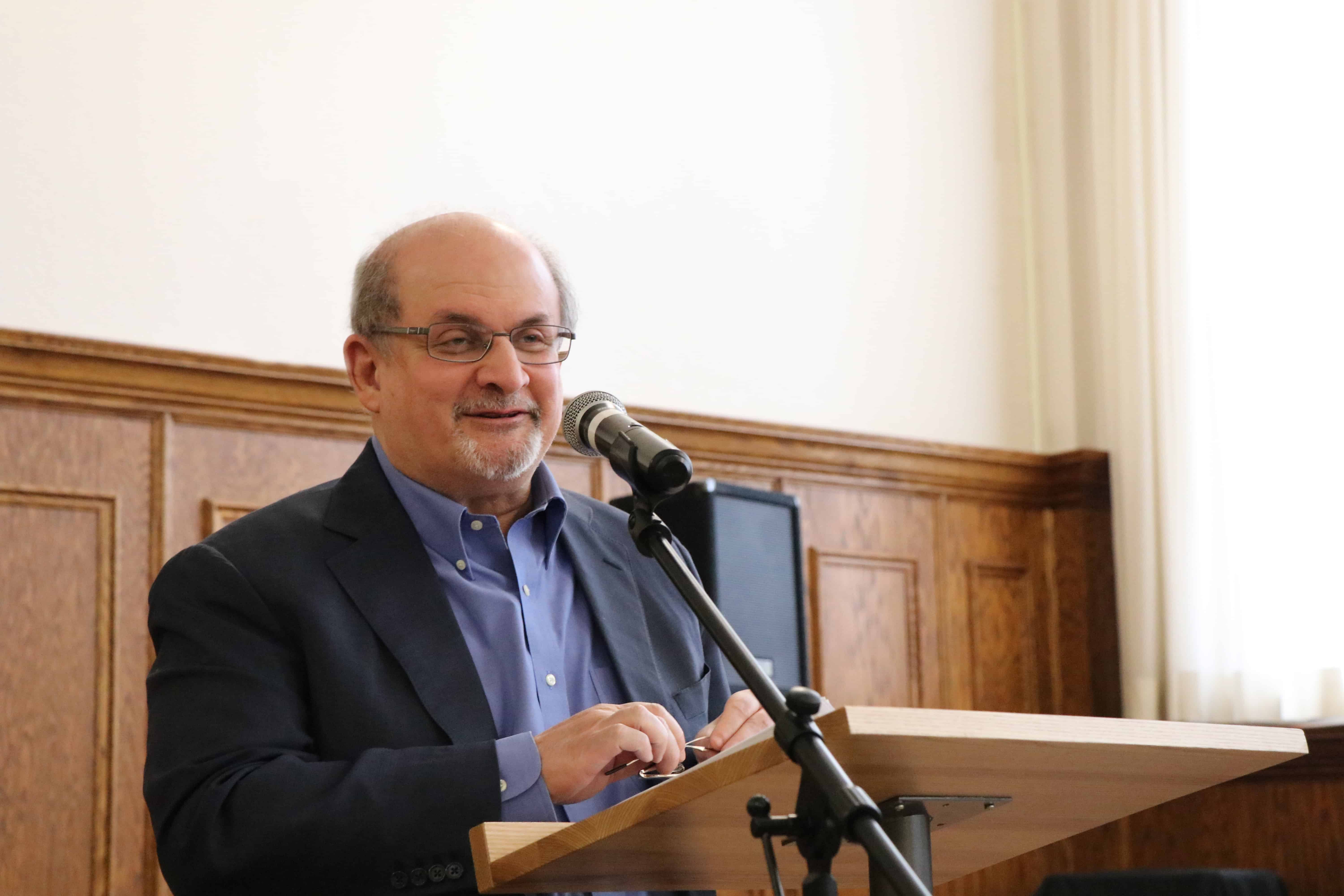Salman Rushdie, the British Indian novelist renowned for his use of magical realism and stories with post-colonial focuses, spoke in the Canada Room of Brennan Hall at St. Michael’s College on March 30.
Students gathered to hear Rushdie, the author of Booker Prize-winning Midnight’s Children, read a chapter from his upcoming book, The Golden House. Seated at the front row of the crowd was University of St. Michael’s College leadership, including President David Mulroney.
The event began with opening remarks from Principal Randy Boyagoda. “We are committed to exploring the intersection of the sacred and the secular, the theoretical and the practical,” Boyagoda said. “There are few figures in the world like Salman Rushdie when it comes to exploring the wholeness of human experience.”
Following a brief introduction by Boyagoda, Rushdie took the podium. “This is kind of as interesting for me as I hope it will be for you,” he joked in his first words. “I’ve never read this aloud before.”
He began reading from the first chapter of The Golden House, which will be published in English in September.
Reminiscent of Rushdie’s other works, the book begins with the fantastical arrival of a mysterious, wealthy foreign family to New York, where they attempt to reinvent themselves. It takes place in the wake of the inauguration of Barack Obama, “when so many of us were close to economic ruin in the aftermath of the bursting mortgage bubble, and when Isis was still an Egyptian mother goddess.”
Once Rushdie finished reading his excerpt, he was joined by Ato Quayson, Professor at the Department of English and Director of the Centre for Diaspora and Transnational Studies, for a conversation segment.
Quayson’s questions were lengthy and complex, centring on his interpretations of Rushdie’s works in comparison with each other and other pieces of literature.
The majority of the questions had to do with the roles of identity and narrative in shaping Rushdie’s stories; the writer jumped at the opportunity to share quirky and intimate anecdotes from various points in his life.
He talked about his relationships with the characters he created, adventures he had, and moments with his family. He told stories about studying at Cambridge, travelling through India with the money from the advance for his first book, and coming to terms with having his family uprooted when they moved from Mumbai to Karachi.
In one moment, Quayson played the song “Blackbird” by The Beatles on his iPad, projected to the listeners in Canada Room through his microphone. He asked Rushdie how he, like the blackbird, learned to take broken wings and fly. Rushdie went on to explain the day he purchased The Beatles’ White Album but hesitated to get into anything personal.
“Everybody is wounded,” Rushdie said. “The point about life is that life wounds you… but it goes on wounding you until it kills you. So the question is how do you deal with that?”
Rushdie’s infamous 1988 book The Satanic Verses resulted in a fatwa — an authoritative ruling on a point of Islamic law — ordering his death, issued by Ayatollah Khomeini of Iran.


